„Confessions of a drummer“ – a joint interview with Frost of Satyricon by Diana Chavdarova and Madelen Engeseth of Scream Magazine (Norway). The article is published in Norwegian in the June 2010 issue of the same magazine. Photo by Madelen Engeseth.
Logic and disciplined thought are apparent in all of your statements. What is your formal education?
Well, says Frost, I’m actually an engineer, but that’s an education I’ve never made use of. I took a course in Computer Science at Oslo University, graduating with an engineering degree. I sort of thought that I might combine that kind of work where I had great mobility and flexibility, with Satyricon. When I undertook those studies, Satyricon had begun to grow to some extent. So I thought, given the market situation in those days, that I would be able to get a job anytime with an IT-education. Thought I could get well paid temporary jobs in between the Satyricon tours. However, things turned out differently by the time I was finished. Education was really worthless. There weren’t many jobs and any chance for the newly graduated to get them, not to mention temporary jobs and such. It is quite a sleeping title I have, he says.
Why choose music as your occupation?
To answer that, we must look into what happened in 1992. I had actually put my drumsticks on the shelf, and thought that I should remain a devoted fan rather than a musician, since that was how I viewed myself. I had played drums for some years, but not taken it that far. I didn’t think of myself as a musician, even though I had a tremendous interest in music and had already chosen black metal as my lifestyle. I thought that some people had to be fans as well – that’s how I pictured the whole thing. Then it happened that Satyr had mentioned to Bard Faust that Satyricon needed a drummer. I knew Faust well from Lillehammer, we had both lived there and even played together some time earlier. (Frost catches his breath…) So, Faust brought us together, and Satyr and I decided that I should audition for Satyricon – it was the end of 1992. I didn’t feel I was particularly good; I hadn’t played in months, either. I was rusty in addition to being bad,Frost says with a smile. It wasn’t a very impressive scenario, really, but Satyr and the two others that were in Satyricon at the time saw some kind of potential in my playing. They probably felt there was something special about my sound, a character and aggression maybe. The type of fuel they needed. They wanted to hear more and didn’t give up, so I thought I should capitalize on this. I began to practice like a beast. Seized the opportunity, and the rest is history as they say. This isn’t quite true, however, because I continued to pursue music as a passionate hobby for years. In 2003, I decided that I should start seeing myself as a musician. Up until then, I didn’t. I thought of myself more as a fan that ran away with music.However, I have always had little interest in the geeky aspects of having music as more than just a hobby. I haven’t studied other drummers, haven’t had any role models. I have not been so fanatically concerned with my own instrument. For me, the guitar has always played a greater role in the sound as a whole. I’m not exactly the type that would use my spare time to brush cymbals and wax my drum kit, he laughs. It was probably more in later years that I really started to dig what other drummers were doing, and listen to different types of music to find solutions for what works and what doesn’t. It was probably more to broaden my horizons and better myself at my instrument. So, the answer is twofold – I took an important step in 1992, and another equally important recently.
You demonstrate, in your statements and playing, two opposite sides: one of structure and logic and another of instinct and intensity. How do you balance them, and is one stronger than the other?
I suppose that the latter was stronger at first, because then I didn’t reflect much on what I was doing. I was really just driven by my interest in music, and playing drums was a way to show it actively. It has over time become a natural consequence that music felt like a great part of my life and I felt that I lived and breathed for it, but without being a musician with capital M.
I let myself be more or less guided by my own dedication, rather than systematically working to improve myself technically, analyze my own task and so on. I probably have a lot more balance between those things now. It is an insight that has to do with my desire in recent years to seriously improve myself. I feel that perhaps there is a potential there that can and should be exploited. To do so, I need discipline and I need structure, I need a way to bring that in. However, the violent and somewhat animalistic drive that I have while I’m playing will always be there. It is habitual and a part of my way of being. If I feel that it isn’t there anymore, I think I will lose all motivation to play.
What part of your personality is most organically expressed in your cooperation with Satyr, and do you feel that your cooperation with him is more creatively liberating than that with any other artist?
To answer the latter first, I will say both yes and no. Accordingly, the way I work in Satyricon is much different from the way I work in 1349. In Satyricon I work with a very creative person. I think of him as the greatest composer the black metal scene has today, and so it is logical for me to devote myself to that. To complete his compositions and be a part of his creative work also spurs me to think in a creative way. I have to complete his creativity by demonstrating creativity on my own instrument. We want Satyricon to be creative, and that should be present on all levels. He has stimulated me to think creatively, and to see others develop and be innovative does something for me too. Satyr will often sit playing the guitar while I play drums, and then we will get into a productive track and keep on. We then are both creative and it is stimulating.
1349 is creative in a slightly different manner: there are less limitations and as a rule I myself decide everything that comes to the drums. I have total control of the rhythmic side of 1349 – then I get to use the natural creativity that I have. 1349 has a very good band spirit that is motivating and inspiring in itself. I can’t say that I prefer one band over the other, because these are two different ways of working. I am very happy that I have these two different bands – one where I’m completely free and I can let things bubble and boil over, and one where another person controls much of the development.
What specific aspects of your contribution to Satyricon fuel your passion for music?
It is hard to say anything other than that it should be all about the drumming, and it is by necessity a wholistic picture. To devote myself to Satyricon the way I have done and put my entire soul into my playing.
Have you reached a point where you could lead a project of your own?
Yes, I have written and arranged music for 1349 for example. Wrote lyrics even. But that doesn’t mean that I lead the band. It is like that in Satyricon too – at times I will lead the live-band. I lead the rehearsals and decide when we should meet, the points of focus, what songs to play etc. In a different way, I take the lead in 1349 when I feel necessary. It is open for everyone to do that in the band. However, I do it mostly when it comes to arranging music and developing specific concepts. I will never be the leader of a band and I have no wish to have a band of my own.
You have said in an interview that “black metal has been evolving like any living organism, but the time has come for a revolution”. Could you please elaborate?
Yes, I can. I think that we have reached a point where something much more radical should happen, than has been the case in the past 10-15 years. The bands that front the whole black metal scene today are basically the same bands that were the leading players about 15 years ago. Besides that, there are projects that have been started by that generation. There are some new and good bands that have come forth recently, but in my opinion they resemble in all major aspects the bands from our generation. That is still the leading concept.It’s almost as if the new bands that emerge have to sound like old Darkthrone, Bathory or early Immortal to break through, while those who created the scene and built the foundations of what we have today, were very creative and did something that had never been done before. That was the way with Venom, Celtic Frost and Bathory. And when Norwegian bands came and revitalized an almost dead scene in the 90s, they also created something new that hadn’t been there before. This was the case with ”A Blaze in the Nothern Sky” by Darkthrone, Burzum, old Immortal, etc. Even if their references were obvious, they contributed with something new to a genre that was very radical. That’s what I feel we need now. I think that things have stagnated so much, that it is urgent for something like that to happen again to signify that the genre would continue to live. It’s become so old and stiff, with a nasty tendency to be repetitive and unoriginal, while it should be a creative and tremendously brute force. It has very little sting and it becomes conservative. And that is not good, he says smiling. So we need a bunch of 16-18 year olds that are really, genuinely black metal – something which is unlike anything else. Anything that’s more than just incredible speed or authentic sound.
Your decision to devote your life to music seems to have been taken recently. Could you specify the time and circumstances around it?
It would be difficult, he thinks before continuing. I came to that decision in 2004, and I guess I began to think about in 2003. In 2004, I decided this was the way I wanted things to be. From then on I would start seeing myself as a musician. I feel that there is a responsibility there as well.
As your skill level and confidence increased during your career, has your view changed on the importance of drums in song structure?
Yes, very much so. What I have learned recently is that assessing one’s own role is fucking important. Indeed, it is essential for every musician. But I wish I had learned that earlier. I think that in old Satyricon I did too much, played too much. I paid too much focus and attention, which ruined the drive of the songs. I should have allowed more room for the guitar and vocals in many places. There needn’t be anything wrong with fierce intensity or dense information, but you should always consider whether it is appropriate or not. This I have begun to realize recently, and I think it has pulled me further than many a technical success.
You often say that you ”still live the black metal lifestyle”. What does that entail?
It is a bit obscure, but I discovered around 90-91, he says thoughtfully, that the whole aura I perceived as black metal was damn appealing. I went to Helvete, for the first time in 90 or 91. Then everything was black, it was obscure. There were religious symbols, St Peter’s crosses, cat dolls with blood painted across their eyes, bullet belts and so on. And people had a dark aura that came with the spikes and long black hair and the whole package. It really got me. I thought: ”this is it”. Young people often search for an identity, without necessarily being aware of it. I guess I did, too. It came as a flash – there was finally something I could identify with. It was very strong; I realized this was the way it was going to be, without thinking of the consequences or what I was going to do. I was in, I already had black clothes and an inverted cross hung around my neck and so on. But there’s something more to it. I think I was very aware of the dark atmospheres and how much they meant to me. The clothing style I can still call my own. In 1349 I grow a bit traditional with leather and spikes, trying to take it far and make it grim. I have strong intuition for what works in that world. I like to experience the dark world that arises, and really make things right in order for black metal and other dark music to work.
What kind of literature has influenced you, and how?
I don’t know if there’s any piece of literature that has directly influenced my musicality. All that one reads will surely have an impact, and it might to some extent emerge in the style of playing. However, it would be more on a subconscious level. I read some cult literature, because I find it fascinating. The human subconscious is a very exciting field and that is exactly what magic is about. In addition, I think that Aleister Crowley has a very elegant style of writing. I like several books by Brett Easton Ellis, largely because of the language, as much as the plots. I love his language. He has been very lucky with the translations of his books into Norwegian. I have read ”American Psycho” in both Norwegian and English – it works very well in both languages. I think there are many clever translating solutions in Norwegian. So, these are excellent books. How literature has affected me, I don’t really know, I don’t think that way in relation to literature. The things I choose to read, the things I choose to listen to, and the way I express myself when I play, may all represent different sides of me. I am not sure whether these sides influence each other. I won’t deny the possibility.
Do you have favourite films and TV series?
I will highlight Eraserhead as my favourite film. This must have been David Lynch’s first real movie. It is completely outstanding. Very dark and dystopic. Lots of surrealism that he has given a shape and that I like very much. I have a deep sense of David Lynch and the way he relates to ideas and the human subconscious in a very successful way. He has no trouble completely devoting himself to abstract ideas to which he gives a cinematic shape, while at the same time placing them in a rather regular film context. I think the way he works with colours and filters is completely outstanding. The nightmarish mood in Eraserhead is probably what I rank the highest.There’s the feeling when I watch a David Lynch film that works within my mind. I understand him on some level even though I sometimes lose track, but at the same time it is just fascinating, he smiles. To see how he can create moods and cinematic art that you do not necessarily understand, but like a lot – I feel very inspired by seeing such things.You also mentioned TV series, and it’s obvious there must be Twin Peaks. Especially the first eight episodes, and the final. I like the series in its entirety and the characters he created. It’s absolutely brilliant.
You have the groove of a jazz drummer. To what extent do you appreciate jazz? What types of music do you listen to nowadays?
As a matter of fact, at the moment I listen a lot to a band that could be categorized as jazz, Bohren und der Club of Gore from Germany. It is basically a slow jazz band that operates on the borders of black, tenacious dark jazz, ambient and tafelmusik. All of their albums are very good. It is darker than…all black metal there is. People who are familiar with the jazz-like themes of Angelo Badalamenti, film music-maker who has worked closely with David Lynch for many years, would probably nod in recognition to much of Bohren’s music.
Do you have other artistic talents, for example design, drawing, etc.?
I wouldn’t take it that far. I have made a few rather simple designs. I used to do some logo drawing and stuff like that many years ago. I don’t do that much anymore. It was more of an interest I had in my teens, maybe in my early 20s. Now I feel I haven’t the time to dedicate myself to anything other than drumming, which is more than a big enough task in itself. Now and then, it is fun to draw a little – I usually draw patterns, symbols and logos. I think it would be fun to work a little on the guitar, too. It would have been great to be a guitarist, because I would like to write more music; I have already written some on guitar, but I can’t really play the instrument. That is a creative obstacle, obviously.
Have possibilities for commercial success played any role in your participation in a project and the direction you want the music to take?
Then I would have paved my own downfall. I work so that the bands I am in, go further, and the two bands in which I participate are Satyricon and 1349 – it is that simple. When we create music and visual concepts, anything artistic, we just do what we want, what we think is right. What fits the project that we’re working on. We follow our own taste. When things are done we will do our best to bring it as far as we can. He contemplates. In order to dedicate ourselves to what we do, we are obviously dependent on making money out of it. However, we will never whore ourselves, or we better just call it a day. I think it’s a good thing to work to get your records out.
Could you say that Satyricon is mentally challenging to you, while 1349 is emotionally challenging?
Well,he smiles. I can understand what you mean, in a way. In another way it is really the same thing. However, in regard to “mentally challenging”, I think that the way I play in Satyricon has come to be a lot about groove and taking things down, making it simple. It is much more mentally than physically demanding, and it is in many ways maybe heavier. In 1349, it is really hard work, and to be able to have that drive all the time, you have to be emotionally involved. I have an aggressive drive which arises spontaneously when I sit behind the drum kit, regardless of what I’m playing really, for better or worse. When I play with 1349, however, I invoke it additionally. That brings forth a lot of red energy in my direction. It is both a mental and an emotional thing. He thinks for a second.It is very important, that is. A sheer technical approach would not work for me at all.
To what extent are you involved in composing music and lyrics for 1349 in the last two albums?
As for ”Revelations of the Black Flame”, I didn’t write music for that album; however, I worked very creatively with the rhythm on the three regular metal songs. ”Maggot Fetus/Teeth Like Thorns” was a song I got perfect musical contact with. It was a damn kick to work with it and I still think it is one of 1349’s best songs – simple and straightforward but still evocative and special. The title of the album was mine by the way; the night it emerged I just had to forget about sleep. I think the dark, twisted and eerie atmosphere of ”Revelations…” is superb. On ”Demonoir”, I have contributed with an odd theme and worked a lot with arrangements and structuring. In addition, I wrote the lyrics to the title track. But above all, I put a lot of effort into the drumming solutions; I had the idea that the album should be incredibly dark, intense and violent, and I saw it as a task to substantiate with my drumming. It was all an exhausting affair, both to create and perform much of the material. The concept of viewing the songs as qliphotic stations or levels and linking them together with intros and intermezzos – which we call tunnels – was also mine. I see ”Demonoir” as an album with qliphotic moods – I link it with the tree of death according to the Kabbalistic tradition – and death is comprised of three stations that are connected with tunnels; Seth’s tunnels. These musical tunnels on “Demonoir” contribute greatly to give the album its twisted, dark and sinister atmosphere, and above all bind the individual tracks together into a whole. I like albums with a strong sense of unity. You should feel that when you enter the Demonoir world, you are not out until you have gone through the entire album.
Do you get many offers from bands who want you to join forces with them?
There are the requests, but most people recognize that I am busy with what I do. Even if I can do other projects, I prefer to dedicate myself to what I am doing. I never get into things without giving a bit of myself. At least I have to find something that I like. I have decided to keep things at a minimum; there is no extra time or spare energy. I have decided to prioritize the two bands I am in now. I will not do anything that interferes with the work I do there.
Can you think of musicians that you have not yet worked with, but you’d like to do so in the future?
Nobody in particular. I feel that I have a very exciting future both in Satyricon and 1349. I think that the two bands themselves are exciting instruments for musical expression. With the qualities the bands have now, I think it’s exciting to see how they evolve, and take an active part in it. That is big, Frost concludes, leaving us grateful and inspired.















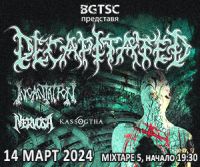
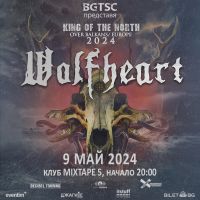
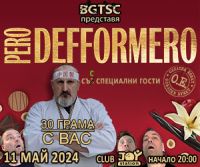
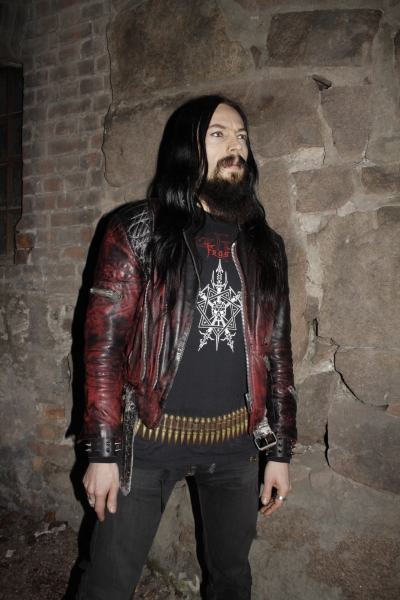

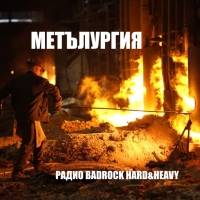

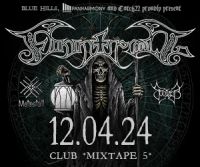
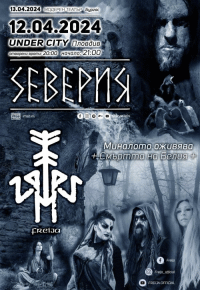
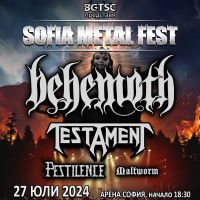
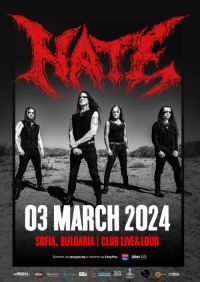
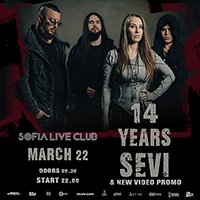

[…] respectively. His playing, especially in the latter, is nothing short of ridiculous. Apparently, he studied computer science or something back in college, which might explain how/why he plays drums like an inhuman machine. The staggering […]
ХаресвамХаресвам